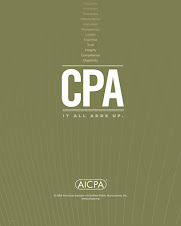Don't ask me why but I like to study philosophy. Recently I was reading the debate about the purpose of jail. There are a bunch of different philosophies about why jailing a person is supposed to be a good idea though admittedly no consensus. Is it punishment for wrongs? A mechanism to isolate “bad” people? A way to get those who did something wrong to think about what they have done? Some combination of the above?
I’m not sure what I think the real purpose of jail is but I’m pretty sure it’s not supposed to be a forum for committing more crimes. And yet, that’s what’s allegedly happening in jails across the country.
CNN recently reported that an investigation into a scheme into a Key West, Florida has found attempts to cheat the government out of more than $1 million – on your dime. Investigators believe that inmates have been filing false tax forms using bogus Social Security numbers and made up businesses in order to collect refund checks. Instructions explaining how to fill out the forms together with cheat sheets – as well as how to keep refund request relatively low (under $5,000) – were circulated among the prisoners in a far-reaching scheme.
Most commonly, prisoners would fill out a form 4852, a form that you use to report wages when your form W-2 is missing. When the forms, along with tax returns were processed, the prisoners received bogus refunds. The refunds were mailed to family members and sometimes, even directly to the prison. At the prison, the refunds were divided among ringleaders (who kept a portion for themselves) and participants in the scheme. Genius, right?
It may not be as genius as it sounds. The scheme is actually nothing new: it’s been happening for years. The IRS has been notified and across the country, charges have been filed and ringleaders prosecuted. However, officials familiar with these cases say that the fraud is ongoing. At Key West, for example, the prison has been intercepting bogus checks still being issued by the IRS for at least one prisoner.
The IRS, for its part, says that it is aware of what’s happening. They note that it is difficult to attack the problem since being in prison doesn’t bar taxpayers from receiving a genuine refund. Even more challenging? The population of prisons is constantly changing which means that patterns may be difficult to spot.
The issue has been on the radar for years. Five years ago, the IRS flagged false refunds from prisoners as a top concern noting that of 118,000 fraudulent tax returns filed, 18,000 were filed by prisoners – that’s a whopping 15%. Prisoners received more than $14 million in bogus claims, though the IRS points out that they successfully blocked an additional $53 million.
The IRS won’t say what steps they are taking to control the number of bogus claims filed by prisoners but they do know who is to blame: you. Reportedly IRS’ position is to issue refunds and then audit later in response to a bigger problem: taxpayers want their refunds quickly. Increased scrutiny of returns at the processing level (while clearly more efficient) would slow down the refund process. And that wouldn’t be popular for taxpayers who want to see refunds.

Wednesday, November 9, 2011
Subscribe to:
Post Comments (Atom)


No comments:
Post a Comment